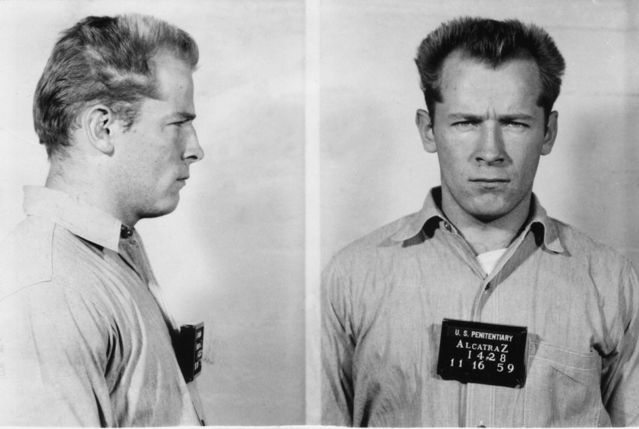Environment
Why 'Instilling Patriotism' Is So Ludicrous
In-group loyalty is a natural impulse, so why do we try so hard to instill it?
Posted September 6, 2016

One of the more interesting tidbits about James “Whitey” Bulger, the infamous mobster from South Boston, is that he was known for being quite patriotic. “He didn’t want to hear any commie talk about this country,” explained a former inmate who knew him, echoing descriptions found elsewhere. Bulger even reportedly rescued a desecrated flag while he was hiding from the law in 2004, winning admiration from onlookers who had no idea that he was among the FBI’s most wanted fugitives.
Such national loyalty from someone so antisocial—a career criminal and ruthless murderer—might seem contradictory, but it shouldn’t surprise us. Allegiance to in-groups, whether based on nationality, religion, ethnicity, family or some other classification, is a natural human impulse found in varying degrees in all of us, even those who otherwise seem evil and corrupt. Bulger was very much in conflict with society, yet internally he carried the sentiments of a consummate American patriot.
Knowing that group loyalty is a natural human inclination, we should consider why certain sectors of American society are so obsessed with trying to “instill” patriotism in us. Lawmakers in Missouri, for example, enacted a new law last week requiring recitation of the Pledge of Allegiance at least once each day in public schools. (Note the “at least” in that last sentence—as if mere once-a-day pledge recitation might be insufficient!) Missouri is following the cue of other states around the country, believing that government (and sometimes private institutions) must take affirmative steps to condition citizens, via a steady flow of patriotic exercises, into the mental state of national allegiance.
Such conditioning is neither necessary nor healthy, and as a society we should rethink it. Just ask Colin Kaepernick, the NFL player who unleashed a public outcry after respectfully dissenting from the national anthem. For doing nothing more than sitting out a ceremonial song at the start of a football game, Kaepernick has been called a traitor and worse. Or ask Bradford Campeau-Laurion, who was once ejected from Yankee Stadium for having the audacity to use the seventh-inning stretch to visit the men's room rather than sing "God Bless America." Such hostile responses to mild gestures of dissent show not a healthy patriotism but an aggressive, chauvinistic nationalism.
Despite all of our talk of freedom and democratic values, we as Americans are raised in an environment filled with nationalistic propaganda. Schoolchildren begin each day with a pledge of national loyalty, and even ordinary sporting events are injected with nationalistic elements—and not just the national anthem and "God Bless America," but military color guards, fighter jet fly-overs and similar pageantry. Americans are inundated from early childhood with messages of national greatness, much more so than citizens of most other countries, and it’s time we consider the repercussions.
If fondness for one’s homeland comes naturally to most of us, additional conditioning is only likely to jack up that national loyalty to unsafe and irrational levels. This is why a critically thinking population is so essential to healthy democracy, and why anti-intellectualism is so dangerous. With so many institutions standing to gain from excessive patriotism—politicians, the media, the military and, perhaps most significantly, enormous corporations that reap massive profits from unquestioned military spending and adventurism—only an intelligent and engaged citizenry can stand up to the such forces.
And bear in mind that selling patriotism to a population, particularly a society that isn’t thinking critically, is incredibly easy. The notion that we must affirmatively work to “instill” patriotism in ourselves is as ludicrous as the idea that we must work to “instill” loyalty to our mothers. If you would chuckle at the suggestion that we should recite a pledge of loyalty to mom when we awaken each day, you should ask why we insist that America's schoolchildren should take a loyalty pledge to their country each day.
And don't suggest that such nationalistic rituals are benign. At a minimum, the hyper-patriotism they produce ensures that many will demand conformity and exhibit hostility toward dissent as we saw in the Kaepernick scenario. In an anti-intellectual society, those who question authority or longstanding cultural flaws are quickly branded subversive. Thus, many well-conditioned citizens will rush to the defense of the Establishment if someone raises objections to the nation’s out-of-control military spending, ill-advised military misadventures around the globe, or even mistreatment of minorities at home or other grievances. With one side seeing themselves as the “real Americans” and opponents as something less, polarization is assured. Welcome to twenty-first century America.
It’s also noteworthy that governmental efforts to promote patriotism tend to increase at times when patriotism is already heightened. Laws requiring recitation of the Pledge of Allegiance in public schools, for example, spread rapidly after the attacks of September 11, 2001, when in fact national loyalty had rarely been higher. Politicians, having relatively few useful ideas to offer in response to the attacks, used such measures as an easy way of appearing responsive and proactive. Again, critical thinking would have exposed the emptiness of such proposals, but it was sadly lacking.
All of this points to the need to recognize that “instilling patriotism” is a political euphemism for manipulating public opinion, solidifying the authority of those in charge, and creating an environment that nurtures militarism and maximizes corporate profits, with little consideration of the resulting harm and destruction. By being aware of the manipulation, we’ll have taken a step in the direction of attaining rational government that promotes human-centered public policy.
Get my newsletter, books, and more.




